Search
Search Results

Definition
Roman Army
The Roman army, famed for its discipline, organisation, and innovation in both weapons and tactics, allowed Rome to build and defend a huge empire which for centuries would dominate the Mediterranean world and beyond. Overview The Roman...

Definition
Arretium
Arretium (modern Arezzo) was an important Etruscan town located in the extreme north-east of Etruria in central Italy. Flourishing as a trade and manufacturing centre, Arretium managed to overcome its rivalry with Rome and continue as a prosperous...

Definition
Roman Literature
The Roman Empire and its predecessor the Roman Republic produced an abundance of celebrated literature; poetry, comedies, dramas, histories, and philosophical tracts; the Romans avoided tragedies. Much of it survives to this day. However...
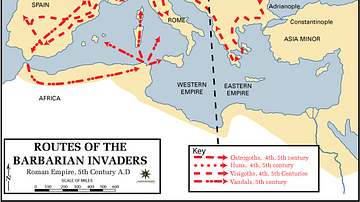
Definition
Western Roman Empire
The Western Roman Empire is the modern-day term for the western half of the Roman Empire after it was divided in two by the emperor Diocletian (r. 284-305 CE) in c. 285/286 CE. The Romans themselves did not use this term. At its height (c...

Definition
Roman Nose (Cheyenne Warrior)
Roman Nose (Woqini, "Hook Nose", l. c. 1830-1868) was a Northern Cheyenne warrior known for his courage in battle, who became so famous among white settlers and the US military that they believed he was chief of the Cheyenne nation. He was...
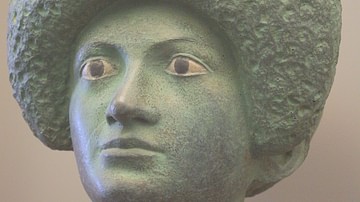
Definition
Roman Art
The Romans controlled such a vast empire for so long a period that a summary of the art produced in that time can only be a brief and selective one. Perhaps, though, the greatest points of distinction for Roman art are its very diversity...

Definition
Roman Religion
In many societies, ancient and modern, religion has performed a major role in their development, and the Roman Empire was no different. From the beginning Roman religion was polytheistic. From an initial array of gods and spirits, Rome added...
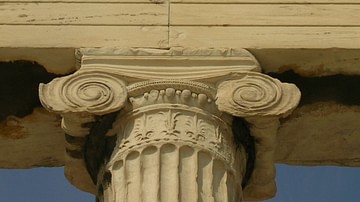
Definition
Greek Architecture
Greek architecture is concerned with simplicity, proportion, perspective, and harmony in buildings. Greek architecture includes some of the finest and most distinctive buildings ever built. Examples of Greek architecture include temples...
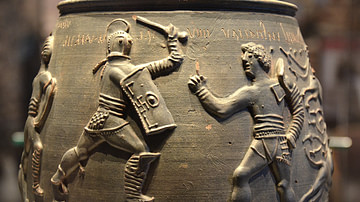
Image Gallery
25 Images of Roman Gladiators
This gallery features images of Roman gladiators. In ancient Rome, gladiators were professional combatants who entertained audiences in the Roman Republic and Roman Empire by violently confronting other gladiators and wild animals. They fought...
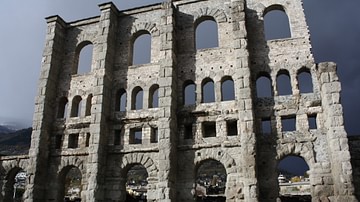
Collection
The Architecture of Ancient Rome
Roman architecture was nothing if not eclectic. From ingenious underfloor heating to gravity-defying arches, the Romans added to the Classical repertoire such grandiose structures as the triumphal arch, basilica, amphitheatre, and city tower...